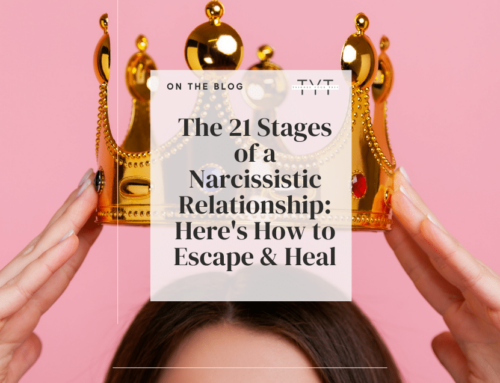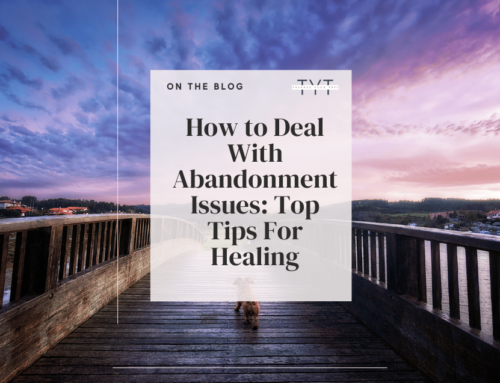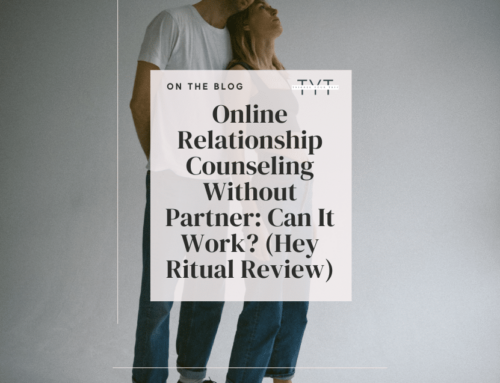Narcissism, a term often associated with blatant expressions of pride and self-admiration, has a subtler form known as covert narcissism. This variant, recently presented by researchers like Paul Wink and Jonathan Cheek, can be equally harmful, although it’s more challenging to recognize. This article aims to guide most people through a free online covert narcissist test to detect the subtler form of narcissism and its traits.
Unlike overt narcissists, covert ones may not display the grandiosity typically linked with narcissism. Instead, they tend to present themselves as sensitive, introverted, and hurt. Emotions like disappointment can be felt, usually anger, and generally, their feelings are easily hurt by ridicule.
Covert ones can be intensely interested in their own affairs while seeming indifferent or dismissive of other people’s troubles. Despite their outward appearance of being self-conscious and sensitive, these people harbor secret thoughts of superiority and entitlement, leading to traits that prioritize their interests above others.
For example, friends often feel jealous when others get the attention they believe they deserve. Tools like the maladaptive covert narcissism scale can help identify these subtle features.
The Covert Narcissist Test
Covert narcissists are indeed the “master of disguise” in the realm of human feelings, and dealing with them can be a complex and challenging task.
Fortunately, there are ways to unmask covert narcissism and regain control of your life.
This quiz helps identify potential signs of narcissism in a person, providing a better understanding of their behavior and aiding in your decision-making process.
This test includes questions that tend to address a person’s reaction to criticism in a personal way and the ability to maintain a communication style.
By answering these questions honestly, one can better understand whether they or someone they know might exhibit narcissistic tendencies.
What Are The Red Flags of a Covert Narcissist?
Covert narcissism, also known as vulnerable or hypersensitive narcissism, is a subtle form of narcissism characterized by introversion, sensitivity, and a pervasive sense of neglect. Individuals with these attributes often tend to measure introversion and exhibit a high vulnerability sensitivity.
Unlike overt narcissists, who are openly self-absorbed and grandiose, covert narcissists conceal their sense of entitlement and superiority behind a facade of victimhood.
They feel humiliated, and their feelings tend to be easily hurt due to their hypersensitive narcissism scale. This often leads them to avoid rejection and dislike sharing their vulnerabilities.
The key signs of such narcissism, which often register on certain narcissism scales, include passive-aggressiveness, a tendency to portray oneself as a victim, and manipulation of others through tactics such as triangulation.
Their narcissistic traits show up in their personal affairs, prioritizing their own interests over others, sometimes to the point of extreme delusions of self-importance. While most people may overlook their slighting remarks, they alternately adore their good qualities, mistaking their self-aggrandizing for confidence.
Dealing with a covert narcissist requires firm boundaries. Be wary of their manipulation tactics and avoid getting drawn into their drama. Unlike dealing with other narcissists, who are typically more transparent about their self-centered characteristics and whose extreme delusions can be more overt, covert narcissists can be trickier to manage due to their subtlety.
Understanding the nuances on the narcissism scale is essential to effectively navigate interactions with such a narcissist.
Read More: 12 Traits of a Narcissist To Spot Immediately & Avoid Attachment
Covert Narcissists Vs. Over Narcissists Difference
Narcissists share a common core trait: an inflated sense of self-importance. However, their existence differs in the way they express their narcissism. The word ‘wonder’ often comes to mind as we try to understand their complex behaviors.
Overt ones are the typical representation of narcissism. They openly display arrogance, are often outspoken and self-absorbed, and obviously crave admiration.
On the other hand, covert narcissists, also known as vulnerable ones, are less conspicuous. They can appear shy, sensitive, and introverted, unlike the violent outward expressions of overt narcissists.
Read More: 15 Obvious Female Narcissist Traits & Ways to Protect Yourself
What is The Pattern of a Covert Narcissist?
Recognizing the signs of a covert narcissist’s manipulation is key when dealing with such people. The following questions may arise: Are they genuine, or is this another ploy for attention?
This constant worrying can make relationships with them uneasy. In both cases, if the behavior causes significant distress or anxiety, seeking help from a mental health professional could be beneficial.
Initial Charm and Idealization
They might shower their potential partner with attention, compliments, and gestures of affection, creating an illusion of deep connection and understanding. This is called the phase of “initial charm and idealization” or “love bombing.”
These people are adept at mirroring their partner’s desires and creating an idealized version of themselves that seems too good to be true. They may also create a sense of urgency or exclusivity around the relationship, pushing for commitment or shared experiences early on.
Read More: Trapped in a Narcissistic Relationship Pattern? The 7 Awful Signs
Devaluation and Manipulation
After the idealization phase, the narcissist may start to devalue their partner. This can manifest as subtle criticism, expressing dislike, passive-aggressive behavior, and emotional manipulation. They might downplay their partner’s achievements, belittle them, or make them feel disappointment, usually shame or anger for minor mistakes. Their feelings are easily hurt by ridicule, leading to shame or angry reactions.
Over time, the narcissist’s true nature may emerge as they become more self-centered and emotionally manipulative. They may engage in subtle forms of manipulation, such as guilt-tripping, playing the victim, or using passive-aggressive tactics. When their ego is threatened or criticized, they are hurt, responding with defensive mechanisms that often exacerbate the situation.
Read More: How Does a Narcissist React When They Can’t Control You?
Victimization and Self-Pity
These people often portray themselves as victims, emphasizing their own suffering or hardships to gain sympathy or attention. They may use their perceived victim status to avoid taking responsibility for their actions or to justify their manipulative behavior.
Triangulation and Gaslighting
To maintain control, such a narcissist may employ tactics like triangulation involving a third party to create a sense of competition or insecurity in their partner. They also might resort to gaslighting, a form of psychological manipulation that makes their partner question their perception, memory, or sanity.
Read More: Narcissist Gaslighting: 19 Ways to Spot This Dangerous Abuse
Discard or Withdrawal
When individual with narcissistic behavior feels they have attained the appreciation and attention they yearn for, they may start to disengage emotionally. This could include disregarding their partner’s sentiments, neglecting their needs, or even terminating the relationship unexpectedly and making them feel disappointment, usually shame.
Read More: The Narcissist Prayer: How To Dive Into the Narcissistic Soul
What Mental Illness Does a Covert Narcissist Have?
Covert narcissism, also called vulnerable or closet narcissism, is a form of Narcissistic Personality Disorder (NPD). Contrary to the overt type who display self-assuredness and openly chase admiration, these ones present themselves as timid, modest, and anxious.
The precise root of NPD is unclear, but it’s thought to be a mix of genetic, environmental, and societal elements. The standard treatment for NPD usually includes psychotherapy, where individuals are taught to interact more effectively with others, develop empathy, and comprehend the underlying reasons for their narcissism. Cognitive-behavioral therapy can be particularly beneficial.
However, it’s critical to point out that many individuals with NPD do not seek assistance and can be difficult to treat due to their lack of self-awareness about their condition.
Read More: Narcissist Hoovering: 8 Behavior Examples With Best Responses
What Do Covert Narcissists Say?
Covert narcissists often use specific phrases to manipulate and control their relationships. They may use statements like “I’m not like other people” or “I’m always there for you, am I not?” to portray themselves as unique or indispensable.
They tend to employ blame-shifting tactics, such as saying, “It’s your fault,” or “Don’t get upset over nothing,” to avoid taking responsibility for their actions.
Furthermore, they may use subtle put-downs or dismissive comments, such as “It’s not a big deal” or “I was just joking,” to belittle their partners and maintain control. Remembering these common phrases can help identify narcissistic behavior and navigate interactions with such individuals.
Read More: 35 Best Karma Narcissist Quotes That Will Shake Your World
Final Thoughts
Narcissism is a nuanced and frequently misinterpreted form of narcissistic personality disorder. Recognizing and managing this type of narcissism in your life can be difficult due to the subtlety of the signs.
Nevertheless, resources like a covert narcissism test can offer valuable perspectives and aid in determining if you’re interacting with a narcissist through tools such as the maladaptive covert narcissism scale.
In the end, knowledge truly is power. By understanding more about narcissism, you can better protect your soul.
More On Narcissism:






